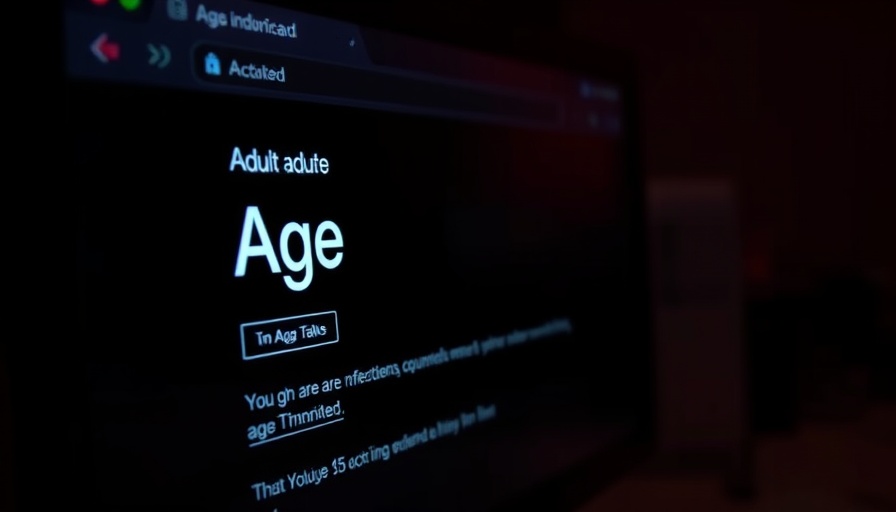
A New Requirement for Accessing Adult Content
Ohio is once again at the center of controversy as lawmakers consider House Bill 84, which will require anyone watching pornography online to provide state identification and other personal details. Proponents of this law argue that it’s necessary to protect minors from harmful content, but critics raise significant concerns about privacy and data security.
The Motivation Behind the Bill
Proposed by Representatives Steve Demetriou and Josh Williams, the bill aims to implement stricter regulations on pornography access with the objective of safeguarding children. Demetriou stated, "Clicking a box that says 'Yes I am 18' is not gonna prevent a 15-year-old boy from going on that website." This comparison to old video rental stores where IDs were checked resonates with the intent to transfer outdated measures into a digital framework. But how effective will this truly be?
Concerns Over Privacy and Data Security
Critics, including local residents like Mallory McMaster, equate the proposed regulation to dystopian scenarios, suggesting that the requirement for a government ID opens a Pandora's box of privacy violations. "I would not be watching pornography on a website that required me to upload a photo of my driver's license," she argues. With fears of potential data leaks and unwanted monitoring by authorities, many are questioning the value of this bill.
Public Sentiment and Diverse Perspectives
The reactions from Ohio residents have been mixed. While some support the initiative as a way to protect children, others are deeply worried about the implications on personal privacy. Numerous individuals worry about their browsing histories being linked to their driver's licenses and faces—creating a personal log that could be misused. The sentiment echoes concerns from various community activists and privacy advocates who argue that this bill may do more harm than good.
A Historical Perspective on Sex and Society
Societies have always had complex relationships with sexuality and its expression. From the censorship of Victorian England to the sexual revolution of the 1960s, cultural attitudes continue to evolve. The push for age verification on adult websites brings forward an age-old struggle: balancing protection for minors against adult freedoms and privacy. History teaches us that while regulation can be necessary, excessive measures often lead to unforeseen consequences.
The Future of Internet Regulation
As we move toward an increasingly digitalized society, Ohio's proposed bill could set a precedent for similar measures across the country. Experts worry that regulations like H.B. 84 may spawn a wave of further restrictions on internet access, particularly regarding adult content. What's at stake is more than just privacy—it's about the future of freedom and personal choice in how adults interact online.
What Can Citizens Do?
As Ohio residents brace for potential changes in the law, public engagement is crucial. Voice your concerns through public forums, town hall meetings, or simply share your thoughts on social media. Lawmakers need to hear your views about privacy, internet access, and the importance of personal freedoms in shaping future legislation. Engaging in this process is not just about advocating for personal rights; it’s about contributing to a conversation that affects everyone.
It’s vital to stay informed and challenge policies that could infringe on personal liberties while fostering discussions that prioritize the safety of our children. The stakes are high, and collective voices may lead to more balanced outcomes in these legislative decisions.
 Add Row
Add Row  Add
Add 




 Add Row
Add Row  Add
Add 








Write A Comment